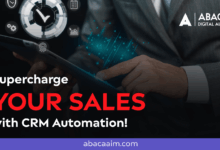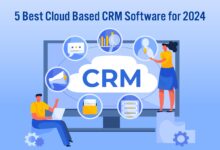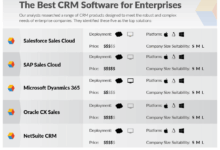Affordable CRM Software for Startups
Affordable CRM Software for Startups is crucial for early-stage businesses navigating budget constraints. This guide explores cost-effective CRM options, essential features, integration capabilities, and crucial security considerations. We’ll delve into pricing models, user-friendliness, scalability, and provide a framework for selecting the perfect CRM to support your startup’s growth, ensuring your data remains secure and your operations run smoothly.
From understanding the various pricing structures available, such as freemium and subscription models, to identifying core functionalities like contact management and sales pipeline tracking, this guide offers a comprehensive overview. We’ll also examine the importance of seamless integration with other business tools and the critical role of data security and privacy in choosing the right CRM solution. Ultimately, this resource aims to empower startups to make informed decisions, selecting a CRM that aligns with their specific needs and budget without compromising on functionality or security.
Defining “Affordable” for Startups
Defining “affordable” CRM software for startups is relative and depends heavily on the company’s stage, revenue, and specific needs. What’s considered a budget-friendly option for a bootstrapped business with a handful of clients will differ significantly from the needs of a rapidly growing startup securing Series A funding. Understanding these nuances is crucial for selecting the right tool without compromising essential functionalities.
Factors Influencing Budget Constraints for Startups
Startups often face tight budget constraints due to several factors. Limited funding, especially in the early stages, is a primary concern. They may be relying on seed money, personal investments, or small loans, leaving little room for expensive software subscriptions. Furthermore, startups prioritize allocating resources to core business activities, such as product development, marketing, and sales, often leaving software purchases lower on the priority list. The need to demonstrate a quick return on investment (ROI) also plays a crucial role; startups need to see a clear benefit from any software investment, making cost-effectiveness a critical consideration. Finally, the inherent uncertainty of a new business means that startups are hesitant to commit to long-term, expensive contracts.
Cost-Saving Strategies for CRM Implementation
Several strategies can help startups minimize the cost of CRM implementation. Choosing a cloud-based solution eliminates the need for expensive server hardware and IT maintenance. Leveraging free or freemium versions, which often offer basic functionalities sufficient for initial growth, can be a cost-effective starting point. Negotiating contracts with vendors, especially for longer-term commitments, can often lead to discounted pricing. Finally, startups should carefully assess their actual needs and avoid purchasing features they won’t utilize, thereby reducing unnecessary expenses. Focusing on a CRM’s core functionalities—contact management, lead tracking, and basic reporting—can significantly reduce costs compared to opting for an enterprise-level solution with extensive, seldom-used features.
Different Pricing Models of CRM Software
Startups can choose from several pricing models, each with its own advantages and disadvantages.
Freemium models offer a basic version of the software for free, with paid options for advanced features. This allows startups to test the software and gradually upgrade as their needs and budget allow. Subscription-based models offer varying levels of access and features at different price points, often billed monthly or annually. This provides flexibility, allowing startups to choose a plan that fits their current budget and scale up or down as required. One-time purchase models are less common for CRM software, as ongoing support and updates usually necessitate recurring fees. However, some smaller, simpler CRMs might offer this option, although it may lack the ongoing support and feature updates of subscription models.
Comparison of Pricing Tiers of Popular CRM Options
The following table compares pricing tiers of some popular CRM options. Note that pricing can vary based on the number of users, features included, and specific contract terms. These figures are illustrative and should be verified directly with the respective vendors.
| CRM Software | Tier | Price (USD/month/user, approx.) | Key Features |
|---|---|---|---|
| HubSpot CRM | Free | $0 | Contact management, deal tracking, basic reporting |
| HubSpot CRM | Starter | $50 | All free features + email marketing, live chat, forms |
| Zoho CRM | Free | $0 | Limited users and features, basic contact management |
| Zoho CRM | Professional | $20 | More users, advanced features like workflow automation |
| Salesforce Sales Cloud | Essentials | $25 | Salesforce’s core functionality for sales teams |
| Salesforce Sales Cloud | Professional | $75 | Advanced features, increased user limits, more customization |
Essential CRM Features for Startups
Choosing the right CRM is crucial for startups, as it directly impacts efficiency and growth. A well-chosen system streamlines operations, improves customer relationships, and ultimately boosts sales. Understanding the essential features and how they benefit your specific business model is key to making an informed decision.
Contact Management
Effective contact management forms the backbone of any successful CRM. This involves centralizing all customer interactions, including contact details, communication history, and purchase records. The benefits are numerous: improved customer service through readily available information, targeted marketing campaigns based on customer segmentation, and enhanced sales opportunities by identifying high-value leads. Affordable CRMs typically offer robust contact management features, often including features like custom fields for storing specific data relevant to your business, automated email sequences, and integration with other communication platforms. For instance, a simple CRM might allow you to track emails and phone calls, while a more advanced system could include social media integration and lead scoring.
Sales Pipeline Management
Visualizing and managing your sales pipeline is vital for tracking progress and identifying bottlenecks. A good CRM allows you to map out each stage of the sales process, from initial contact to closed deal, providing a clear overview of your sales funnel. This allows for better forecasting, more effective resource allocation, and the identification of areas needing improvement. The differences between affordable CRM systems in this area usually lie in the level of customization and reporting capabilities. Some may offer basic pipeline views, while others provide advanced analytics and forecasting tools.
Reporting and Analytics
Data-driven decision-making is paramount for startups. A CRM with robust reporting and analytics capabilities provides valuable insights into sales performance, customer behavior, and marketing effectiveness. This information enables you to identify trends, optimize your strategies, and make informed choices to drive growth. Affordable CRMs typically offer basic reporting features, such as sales summaries and customer activity reports. More sophisticated systems may include customizable dashboards, advanced analytics, and integration with business intelligence tools. For example, a startup could track conversion rates from different marketing channels or identify which customer segments are most responsive to specific offers.
Customer Support and Service Features
Efficient customer support is essential for building customer loyalty and driving repeat business. A CRM can enhance customer service by centralizing communication history, providing quick access to customer information, and facilitating efficient issue resolution. Features such as ticketing systems, automated responses, and knowledge bases are commonly found in affordable CRMs, enhancing customer support capabilities. The difference between systems often comes down to the sophistication of the ticketing system and the integration with other support channels, such as live chat or social media.
Must-Have CRM Features for Different Industries
Choosing the right CRM features depends heavily on your industry. The following lists highlight essential features for various startup sectors:
- SaaS: Strong contact management, detailed deal tracking, robust reporting on subscription renewals and churn rates, integration with payment gateways.
- E-commerce: Order management integration, inventory tracking, detailed customer purchase history, robust reporting on sales and customer behavior, marketing automation features for targeted email campaigns.
- Service-based: Appointment scheduling, task management, service level agreement (SLA) tracking, customer feedback mechanisms, detailed service history per client.
Integration Capabilities
A robust CRM system for a startup isn’t just about contact management; it’s about streamlining workflows and fostering collaboration across different business functions. Seamless integration with other essential tools is crucial for maximizing efficiency and gaining a holistic view of your business operations. This interconnectedness allows data to flow freely, eliminating manual data entry and reducing the risk of errors.
The benefits of integrating your CRM with other software are significant, leading to improved productivity and informed decision-making. By connecting disparate systems, you create a unified platform that provides a 360-degree view of your customers and your business performance. This unified view allows for more effective marketing campaigns, improved sales processes, and better overall customer service.
Successful CRM Integrations for Startups
Successful CRM integrations often center around connecting the CRM with email marketing platforms, accounting software, and project management tools. For example, a startup using HubSpot CRM might integrate it with Mailchimp for email marketing automation, Xero for accounting, and Asana for project management. This allows for automated email sequences triggered by CRM actions (like a new lead), automatic updates of sales in the accounting system, and tracking progress on projects related to specific clients. Another example could involve a startup using Zoho CRM integrated with Google Workspace for streamlined communication and collaboration, and Stripe for handling payments and tracking revenue. This setup facilitates a smoother sales process, improved communication with clients, and efficient revenue tracking.
Comparison of Affordable CRM Software Based on Integration Capabilities
| CRM Software | Email Marketing Integrations | Accounting Software Integrations | Other Notable Integrations |
|---|---|---|---|
| HubSpot CRM (Free & Paid Plans) | Mailchimp, Constant Contact, ActiveCampaign | Xero, QuickBooks Online | Google Workspace, Slack, Zapier |
| Zoho CRM (Free & Paid Plans) | Zoho Campaigns, Mailchimp | Zoho Books, Xero, QuickBooks Online | Google Workspace, Slack, Salesforce |
| Freshsales CRM (Free & Paid Plans) | Mailchimp, Constant Contact | QuickBooks Online, Xero | Slack, Google Workspace |
| Bitrix24 (Free & Paid Plans) | Built-in email marketing tools | Limited direct integrations, often requires third-party apps | Various integrations via API and third-party apps |
User-Friendliness and Scalability
Choosing the right CRM for a startup involves a careful balance between immediate needs and future growth. A system that’s easy to use now but can’t handle expanding operations later is as unhelpful as a powerful but overly complex system that hinders daily workflow. User-friendliness and scalability are therefore critical considerations.
A user-friendly interface is paramount for a startup CRM. Intuitive navigation and ease of use ensure quick adoption by the team, minimizing training time and maximizing productivity. Scalability, on the other hand, allows the CRM to adapt to the company’s evolving needs as it grows, avoiding costly and disruptive migrations later.
Ideal User Interface Characteristics for a Startup CRM
The ideal user interface for a startup CRM should prioritize simplicity and clarity. A clean layout with intuitive icons and easily accessible menus minimizes confusion and allows users to quickly locate needed information. The system should feature a customizable dashboard that allows users to personalize their view, displaying only the most relevant information. Consistent design elements across all modules ensure a unified user experience, reducing the learning curve. Furthermore, robust search functionality allows for efficient data retrieval. Consider a CRM with a help section or integrated tutorials to further support users. Finally, a mobile-responsive design is crucial for accessibility from various devices.
Significance of Intuitive Navigation and Ease of Use
Intuitive navigation and ease of use directly impact user adoption and productivity. A CRM that is difficult to navigate will lead to frustration, decreased user engagement, and ultimately, a failure to leverage the system’s full potential. Startups, often operating with limited resources, cannot afford the time and expense associated with extensive training or low user adoption rates. An intuitive system allows employees to focus on their core tasks rather than struggling with the software. This translates to increased efficiency and better data management, contributing to improved business outcomes. For example, a simple, drag-and-drop interface for task management would be significantly more effective than a complex, multi-step process.
Importance of Scalability to Accommodate Business Growth
Scalability is crucial for long-term success. As a startup grows, so too will its data volume and user base. A scalable CRM can adapt to these changes without requiring a complete system overhaul. This avoids disruptions to workflow, minimizes data loss risks during transitions, and reduces the long-term costs associated with migrating to a new platform. Choosing a scalable solution early on protects the investment and allows the business to focus on growth rather than IT infrastructure. For instance, a CRM that can easily handle an increase in users, data storage, and features without performance degradation will be a more valuable asset to a growing company than one that hits its limitations quickly.
Assessing the Scalability of Different CRM Solutions
Assessing the scalability of CRM solutions requires careful consideration of several factors. First, investigate the vendor’s infrastructure. Cloud-based solutions generally offer better scalability than on-premise systems. Examine the vendor’s track record with scaling for similar sized businesses. Look for features such as automated backups and disaster recovery options, crucial for data security and business continuity. Check the CRM’s capacity for handling increased data volumes and user accounts. Consider whether the CRM offers API access for seamless integration with other business applications. Finally, review the vendor’s pricing model to ensure it can accommodate future growth without significant cost increases. A clear understanding of these factors will allow startups to choose a CRM that can support their growth trajectory.
Data Security and Privacy
Protecting your startup’s data is paramount. A robust CRM system is only as good as its ability to safeguard sensitive customer information. Data breaches can lead to significant financial losses, reputational damage, and legal repercussions. Choosing a CRM with strong security features is therefore a crucial decision for any growing business.
Data security in CRM software involves protecting customer data from unauthorized access, use, disclosure, disruption, modification, or destruction. This encompasses various aspects, from the physical security of servers to the implementation of robust access control mechanisms and encryption protocols. Data privacy, on the other hand, focuses on complying with relevant regulations and ensuring that customer data is handled responsibly and ethically, respecting individual rights to privacy.
Data Security Measures
Several measures contribute to ensuring data security within a CRM system. These range from technical safeguards to procedural policies and employee training. A multi-layered approach is essential for comprehensive protection.
Compliance with Regulations
Compliance with data privacy regulations is crucial. Regulations like GDPR (General Data Protection Regulation) in Europe and CCPA (California Consumer Privacy Act) in the US mandate specific data handling practices. Affordable CRMs should offer features that assist businesses in meeting these compliance requirements. This includes providing tools for data subject requests (e.g., right to be forgotten), consent management, and data breach notification.
Security Features Comparison Across Affordable CRM Platforms
Different affordable CRM platforms offer varying levels of security. Some may offer basic features like password protection and data encryption, while others might include more advanced options such as multi-factor authentication, access controls based on user roles, and regular security audits. For example, HubSpot’s free CRM offers basic security features, while paid plans provide more robust options. Zoho CRM, another popular option, also offers a tiered security approach, with more advanced features available in higher-tier plans. A thorough comparison of security features offered by various platforms is essential before making a decision.
Security Checklist for Choosing a CRM
Before selecting a CRM, consider the following security aspects:
- Data Encryption: Does the CRM encrypt data both in transit and at rest?
- Access Controls: Does it offer role-based access control, allowing granular permission settings for different users?
- Authentication: Does it support multi-factor authentication to enhance login security?
- Data Backup and Recovery: Does it provide regular data backups and a reliable disaster recovery plan?
- Security Certifications: Does the provider hold relevant security certifications, such as ISO 27001 or SOC 2?
- Compliance with Regulations: Does it assist with compliance with relevant data privacy regulations (GDPR, CCPA, etc.)?
- Security Audits: Does the provider conduct regular security audits and penetration testing?
Choosing the Right CRM
Selecting the perfect affordable CRM for your startup can feel overwhelming, given the numerous options available. However, a systematic approach can significantly simplify the process and ensure you choose a system that aligns with your current and future needs without breaking the bank. This section outlines a step-by-step guide to help you navigate this crucial decision.
Step-by-Step CRM Selection Guide
This guide provides a structured approach to choosing a CRM, moving from defining your needs to final implementation. Each step is crucial for a successful CRM adoption.
- Define Your Needs: Begin by clearly outlining your startup’s specific requirements. Consider factors such as the number of contacts, the complexity of your sales process, and the level of reporting you need. For example, a simple e-commerce business might only need contact management and basic sales tracking, while a SaaS company might require more sophisticated features like lead scoring and pipeline management. Documenting these needs will act as your selection criteria.
- Budget Determination: Establish a clear budget. Affordable doesn’t necessarily mean the cheapest; it means finding the best value for your money. Consider not only the initial cost but also ongoing expenses like subscription fees, implementation costs, and potential training. Research pricing models (e.g., per user, per feature) offered by different vendors.
- Shortlist Potential CRMs: Based on your needs and budget, research and create a shortlist of potential CRM solutions. Explore both established players and newer, more affordable options. Consider factors like user reviews, industry reputation, and feature comparisons. For instance, you might compare Zoho CRM, HubSpot CRM (free version), or Pipedrive.
- Trial and Evaluation: Most CRM providers offer free trials or demos. Take advantage of these to test the software’s functionality and usability. Involve your team in the evaluation process to get diverse perspectives. Focus on how well the CRM integrates with your existing tools and workflows.
- Vendor Comparison: Create a comparison table to objectively evaluate the shortlisted CRMs. Include factors like pricing, features, integrations, user-friendliness, customer support, and scalability. Weight each factor based on its importance to your startup. For example, if seamless integration with your marketing automation tool is critical, give that factor a higher weight.
- Implementation and Data Migration: Once you’ve chosen a CRM, plan for implementation and data migration. This may involve data cleaning, importing existing contacts and customer data, and training your team on how to use the new system. Consider professional assistance if needed, especially for larger datasets.
Best Practices for Evaluating CRM Options
Effective evaluation hinges on aligning CRM features with specific business requirements. This ensures optimal resource allocation and minimizes implementation challenges.
- Prioritize Key Features: Focus on features directly supporting your core business processes. Avoid getting distracted by bells and whistles that don’t add significant value.
- Consider Scalability: Choose a CRM that can grow with your business. Avoid solutions that will quickly become limiting as your startup expands.
- Seek User Reviews and Testimonials: Read independent reviews to understand the real-world experiences of other users, particularly those from startups similar to yours.
- Assess Customer Support: Reliable customer support is crucial, especially during the initial implementation phase. Look for providers offering various support channels (e.g., phone, email, chat).
Decision-Making Framework
A structured framework helps prioritize criteria and facilitates informed decision-making.
| Criterion | Weighting | CRM A Score | CRM B Score | CRM C Score |
|---|---|---|---|---|
| Cost | 30% | 8 | 7 | 9 |
| Features | 40% | 7 | 9 | 6 |
| Integrations | 20% | 9 | 8 | 7 |
| Support | 10% | 7 | 6 | 8 |
A weighted scoring system allows for a quantitative comparison, enabling a data-driven decision.
Illustrative Examples of Affordable CRM Software
Choosing the right affordable CRM can significantly impact a startup’s growth. The market offers several options catering to different needs and budgets. Let’s examine three examples, highlighting their strengths, weaknesses, and user interfaces.
HubSpot CRM
HubSpot CRM is a popular choice for startups due to its freemium model. The free version offers a generous set of features, making it accessible even with limited budgets. The user interface is clean and intuitive, featuring a dashboard displaying key metrics like recent interactions and upcoming tasks. Navigating between different sections, such as contacts, deals, and companies, is straightforward. The contact page, for instance, displays a comprehensive view of each contact, including communication history, associated deals, and company information. This visual layout allows for quick access to all relevant information. However, the free version lacks advanced features like marketing automation and robust reporting capabilities found in the paid plans. While scaling is possible, more complex functionalities will require upgrading to a paid tier, which can become costly as the startup grows.
Zoho CRM
Zoho CRM offers a more comprehensive feature set compared to HubSpot’s free plan, even in its lower-priced tiers. Its interface is slightly more complex, with a more traditional layout compared to HubSpot’s more modern design. However, it offers a greater degree of customization, allowing users to tailor the dashboard and views to their specific needs. The visual representation of sales pipelines and deal stages is clear, allowing users to easily track progress. Zoho’s strength lies in its wide array of integrated tools, including email marketing, project management, and customer support, all within the Zoho ecosystem. This integration simplifies workflow management. However, navigating the extensive features can initially feel overwhelming for new users, requiring a steeper learning curve than HubSpot. While scalable, the sheer number of features might lead to some users feeling overwhelmed, especially in the initial phases.
Freshsales CRM
Freshsales is another strong contender in the affordable CRM market, emphasizing ease of use and intuitive navigation. Its interface is visually appealing, with a clean and modern design similar to HubSpot’s. The dashboard provides a clear overview of key performance indicators (KPIs), presenting data in a visually accessible manner, using charts and graphs effectively. Contact management is streamlined, with features like automated email sequences and lead scoring available even in the lower-priced plans. Freshsales excels in its focus on sales-centric features, making it a good fit for startups primarily focused on sales growth. However, its features related to marketing and customer service are less extensive compared to Zoho CRM, which could be a drawback for startups with more diverse needs. While scalable, the lack of depth in certain functionalities could become a limiting factor as the startup expands and its needs diversify.
End of Discussion
Selecting the right affordable CRM software is a pivotal decision for any startup. By carefully considering factors like budget, essential features, integration capabilities, user-friendliness, scalability, and data security, startups can effectively leverage CRM technology to streamline operations, improve customer relationships, and drive growth. This guide provides a framework for making an informed choice, empowering startups to find the perfect balance between cost-effectiveness and functionality, setting the stage for sustainable and successful business development.





